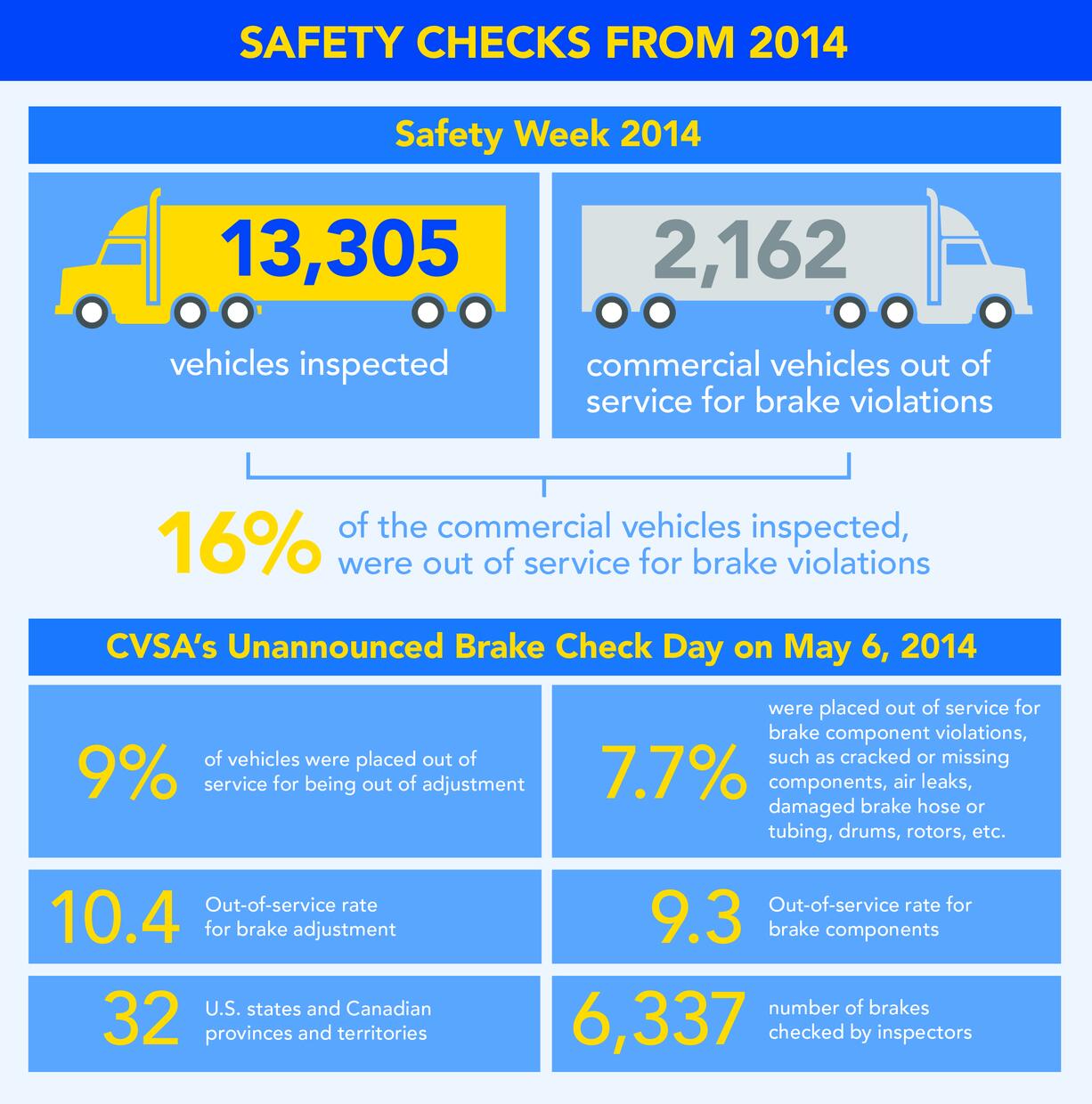Brake Violation Added to SMS Violation List

An out-of-service (OOS) brake violation was added to the list of citations to be scored in the Safety Measurement System (SMS), the Federal Motor Carrier Safety Administration (FMCSA) reports.
According to the agency, it added Section 396.3A1BOS to the list of potential Vehicle Maintenance Behavior Analysis and Safety Improvement Category (BASIC) violations. FMCSA stresses that this specific violation differs from other OOS brake violations currently in the SMS. It relates directly to underlying brake violations that are already in the SMS, but Section 396.3A1BOS is only used when 20% or more of the total brakes are defective and the vehicle is placed out of service.
This most recent addition to the SMS violation list only applies to brake OOS violations occurring as of April 1, 2017. Violations taking place prior will not be used. Vehicle Maintenance BASIC scores will not be affected until May 2017 when the April violations are included.
Call to Action!
The Truck Renting and Leasing Association has requested an exemption from the requirement that a motor carrier install and require each of its drivers to use an electronic logging device (ELD) to record the driver’s hours-of-service no later than December 18, 2017. 82 Fed. Reg. 14789 (March 22, 2017). TRALA requests the exemption for all drivers of property carrying vehicles rented for 30- days or fewer because the ELD mandate will result in unintended technical and operational consequences that will unfairly and adversely affect short-term rental vehicles.
TRALA argues that the exemption, if granted, would not have any adverse impacts on operational safety, as drivers would remain subject to the standard HOS limits and maintain a paper record of duty status (RODS). The term of the requested exemption is 5 years, which may be renewed.
Considering the significant number of different ELD device platforms and subscription options, the notice states that driver’s device might not be able to communicate properly with the rental company’s telematics platform. TRALA states that while FMCSA recognized these issues presented by a lack of interoperability among ELD systems, and required certain technical specifications in the final rule, the agency did not require full interoperability among ELDs. According to the TRALA petition, many commenters to the proposed ELD rule raised these same interoperability concerns. However, the rule requires only that ELDs be able to transfer data electronically via either a ‘‘telematics’’ approach capable of wireless web service, or a ‘‘local’’ method capable of Bluetooth and USB 2.0 transfer.






